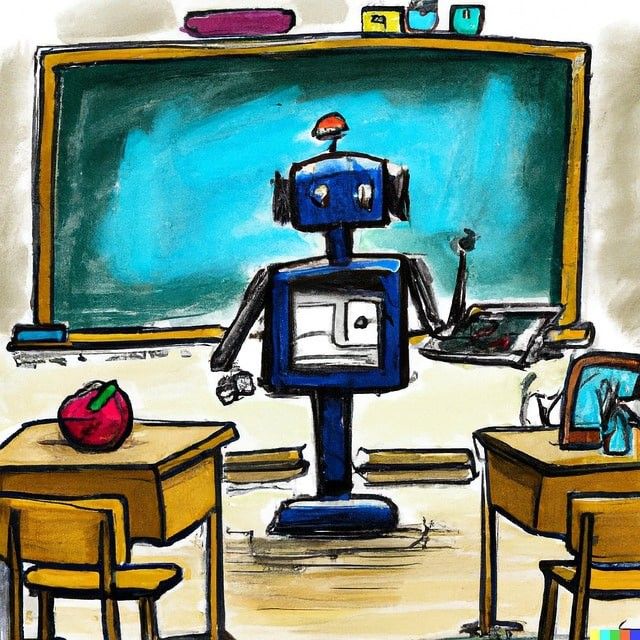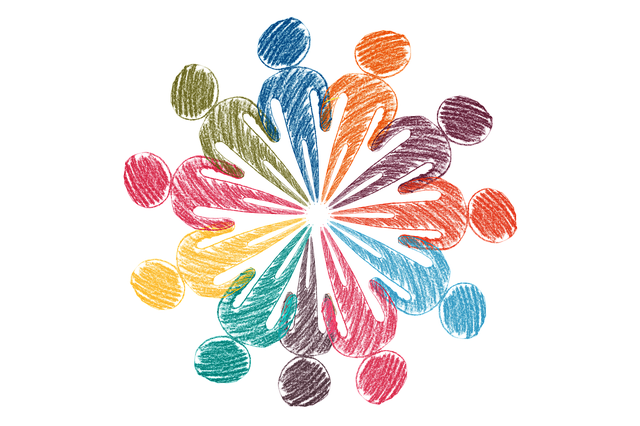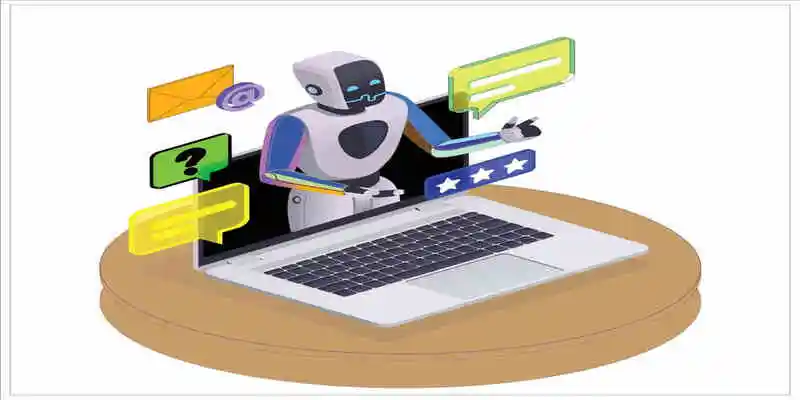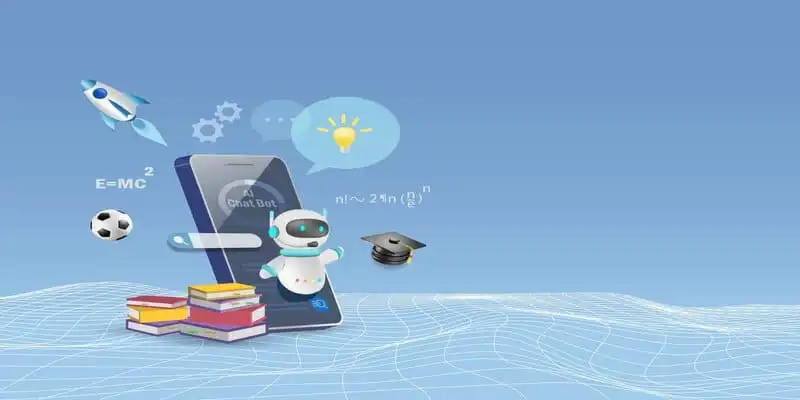The Impact of ChatGPT on Education and Research
The use of ChatGPT positively impacts the field of Education and Research by modifying the way of learning and demonstrating personalized experiences with efficient assessments. However, the prevalent challenges must be addressed to ensure its ethical use in academia for a more inclusive future.

With the great inception of Artificial intelligence, various fields such as customer services, finance, and healthcare and education sectors are making substantial strides, and our learning and teaching have been transformed significantly. With technological progress, university education and research have undergone titanic changes in recent years. One of the most important technologies that have made its streak in Higher Education and Research is ChatGPT, Powered by OpenAI.
ChatGPT (generative pre-trained transformer) is an AI-based language processing model developed by U.S-based OpenAI that can understand and generate human-like text. ChatGPT, the fourth version, claims that it can produce 40% more accurate responses than its predecessor. Furthermore, it can perform tasks such as question answers, summarization, language translation, and much more. It has been used in various applications, from customer service Chabot to content creation tools. According to Statista research, the demand for information from ChatGPT is growing very fast, as it hit the top of 100 index points at the end of February 2023.
In this article, we will mainly explore the impacts of ChatGPT on Education and Research, highlighting its benefits, limitations and impending possibilities. The objective is to present a balanced view of ChatGPT's role in shaping the future of education and research while emphasizing responsible usage. At the end of the article, we have also presented some of the intriguing examples of ChatGPT in education and research from the perspectives of both teachers and students.

What does ChatGPT mean for education?
ChatGPT, an artificial conversational tool, has become a hot topic since its inauguration in November 2022. Because of its rapid growth and development has been seen as a valuable tool in the education sector.
Most researchers thought this AI bot as a magic tool to enhance the teaching-learning process with much comfort and ease. Others think it threatens the development of plagiarised content and cheating.
With a keen interest in the implementation of AI technology in Education, A researcher, “Dr. Vaughan Connolly” said in an interview that:
ChatGPT is going to be a transformational model for both students and learners. All we need is to sit and seriously discuss its benefits and challenges. She added that educators must integrate ChatGPT in an eloquent way.
In an interview, “Dr Steven Watson”, an Associate professor in the Faculty of Education at Cambridge University, said that:
ChatGPT is a strong assistive tool in Education for generating transformative ideas and texts, and educators should consider pros and cons of this tool.
Incorporating the proper use of ChatGPT in Education and Research could be a source of updating knowledge by considering its challenges.

Influence of ChatGPT on University Education and Research:
When we talk about ChatGPT and Higher Education, it could benefit the field of Research. It can help students with a more personalized learning experience and instant feedback. In addition to this, ChatGPT massively impacts university education and Research in a lot of ways which are as follows:
- Data Analysis: ChatGPT in Research can help students with a large amount of data analysis in a very short time. It can assist the researcher in identifying various trends and patterns by saving a lot of time in drawing quick conclusions.
- Review of literature: Literature review has always been an arduous task for researchers to conduct. With the help of ChatGPT, students can get a summary of valid information. By doing so, they can analyze a vast amount of data by quickly identifying already existing gaps.
- Language Assistance: For students doing research but cannot understand a foreign language, ChatGPT can help them interpret complex texts into easier ones, letting them be fully involved in Education.
Apart from its positive influence, it's crucial to keep reminding yourself that ChatGPT is a tool and should be used as an additional resource for improving research skills and knowledge. Universities must critically evaluate ChatGPT's output while applying it to research work.

ChatGPT in Education: Understanding Pros and Cons
With every technology, one must understand the advantages and disadvantages of certain tools.
Pros
- Implementation of ChatGPT in Education mainly benefits in terms of personalized learning. ChatGPT can examine students' or teachers' input and give personalized responses by using NLP (Natural language processing) technique to cope with their needs. This learning mechanism enhances students' pace level, which is more helpful than a manual teaching method.
- Regarding time management, feel at liberty with ChatGPT because of its twenty-four-seven availability. Students can use this learning tool at anytime, anywhere, to get the answers to their queries in a more specific manner.
- ChatGPT can respond in multiple languages, which ensures that it wants every person more learned and be informed in the field of Education. It provides much comfort for those who remain behind because of language barriers and unavailability.
- By providing quick answers to problems, preparing for exams, and offering personalized tutoring, ChatGPT can be a valuable tool in the education sector. It can help students to learn more efficiently.
Cons
- One of the biggest disadvantages of using ChatGPT in Education might lead to the loss of connection between teacher and student. This is rightly so because students will not concentrate on the lecture in the classroom by thinking of utilizing ChatGPT at home despite keenly listening to the one-hour lecture. This may also lead to the loss of interest of students in the classroom.
- Excessive use of ChatGPT in Education can lead to losing creativity and brainstorming of students by offering them quick solutions to their problems.
- Due to the limited data, ChatGPT may convey wrong information, leading to inaccurate or unhelpful responses that confuse the students about the right information.
- Disproportionate use of ChatGPT in Research and Education may result in reduced human interactions, loss of support and delicate connection. These losses can make students more socially cut off.

ChatGPT and Cheating: Understanding the Grading System
As mentioned above, ChatGPT helps students prepare for exams and home assignments. It has become one of the fastest-growing consumer apps, with around 100 million active users. However, it also raises concerns about its potential to enable cheating and plagiarism. Research by study.com reveals that around 90% of students admit to using OpenAI's Chabot, and around 26% of teachers claim that they caught students cheating through this tool. For example, if a student is writing an essay assigned by a teacher and brainstorming is an arduous task, then ChatGPT could be a tempting option for writing that essay in a more advanced manner to save time.
ChatGPT could be the biggest risk factor for colleges and universities to maintain academic integrity in the era of new technologies. Sara Elaine Eaton, an expert in academic integrity, estimated that around 70,000 students buy cheating services yearly in Canadian Universities. So the debate of excluding ChatGPT or detecting AI bot-based plagiarism is still a challenge because, with so many active users, it's impossible to ban ChatGPT. A lot of exertion is needed for educators to catch the possible areas of cheating. Yet they can modify the grading system along with the use of ChatGPT through the following strategies:
1. Student engagement in setting goals
Educators must ensure students about their grading system through the positive use of AI software by telling them to establish task criteria and learning goals while considering AI software which will help students evaluate the possible improvement areas.
2. Incorporation of AI in valid assessments
AI tools like ChatGPT can't be banned in institutions as most universities have already incorporated AI into their classrooms. We need to carefully integrate these tools for their proper use to reflect upon the student competencies. For instance, one of the English professors, Paul Fyfe, designed an experiment asking students to add AI-generated content to their original essays. By doing so, grades will be decided based on AI's available writing tool.
3. Submission of drafts for feedback
Educators must educate students to write essays or assignments independently and then allow AI software to suggest a review of their work in the form of feedback. This kind of formative assessment will help students in positive learning and use AI Chabot.
4. Grading based on each component of the task
Students will be graded based on how well they are involved in each component of the task, including the feedback process. They will also be evaluated regarding the good incorporation of feedback into their original content. Changing the grading system may help address the challenges posed by cheating, but it's very important to consider its consequences. It's a matter of educators how well they can maintain academic integrity by finding solutions to these problems.
Is ChatGPT going to change Education? What are expert opinions?
At the University of California, Riverside, the educational experts share their opinions and thoughts on using ChatGPT in education sectors. Responding to one of the questions related to incorporating ChatGPT in classrooms, a Professor of physics and astronomy, "Ward Beyermann”, answered:
We should discover the positive ways out of it to enhance students learning. As most teachers engage students in project-based learning, ChatGPT could help a lot regarding brainstorming. He added that this technology will be more impactful in personalized learning.
Another professor of Computer science and engineering, “Yue Dong” responded to the question related to the use of ChatGPT that:
It is a large language model that has numerous capabilities such as translation, summarization and question, answers and it shows success in code generation as well. He further added that apart from its benefits still it is not suitable for logical reasoning and up-to-date knowledge.
So educational experts have mixed thoughts on the change in Education through ChatGPT. They believe that AI conversational tools will modify how students learn and teach. So an equilibrium must be maintained on both sides by using ChatGPT as an assistant rather than complete reliance.
Education in the era of ChatGPT: Addressing the possible challenges and risks
AI conversational tool, ChatGPT has so many benefits and capabilities, but it also carries certain risks and challenges.
- ChatGPT has limited data and information, so it is at risk of providing unreliable and inaccurate information. This kind of wrong info when applied in the education and research sector could leave students and teachers more confused and misunderstood.
- Using AI technologies like ChatGPT can lead to the loss of creative and original content in educational processes.
- AI conversational tools are susceptible to biases. These biases can result in unauthentic content creation that may negatively affect teachers and learners.
- Another bigger risk of using ChatGPT in Research and Education is its issuance of incorrect references because of an outdated database. It can only respond to queries on already stuffed data up to 2021. So if the data set is old and inaccurate, it will not be able to respond to new concepts and information.
- Another huge concern about the upcoming challenge of using excessive ChatGPT in Education is that it will decrease the concept of hard work, and the work will be replaced by smart bots, reducing learners' efficiency in absorbing new things.
Examples of ChatGPT in Education
Whenever we talk about initiating ChatGPT in Education, it has numerous applications and benefits. Research shows that around 12%of respondents are generating text through ChatGPT. So, it can reform the ways students and teachers learn and interact with information. Here are some cool use cases in that ChatGPT can be leveraged by students and teachers in Education.
Use cases of ChatGPT for students
1. Ease in homework
One of the biggest ease that ChatGPT provides for students is answering various questions to solve queries in their homework assessment outside the classroom. Students can give different commands/prompts to this Chabot about their problem with their relevant topic. Thus, this AI model will help them clarify the problem statement with examples and explanations.
2. Personalized experience
ChatGPT can help students with personalized learning. It can understand their learning style and provide personalized content according to their preferences. In this way, students can learn in a more specific manner.
3. Improvement in writing skills
Students can utilize ChatGPT to improve their writing styles. For example, it can suggest improving grammar, sentence structure and word choice in assignments, essays or other written documents. They can also use this tool to generate their first draft for an essay, which will ultimately save a lot of time and refines the worth of work.
4. Language upgrading
ChatGPT in Education can be valuable for students to enhance their language proficiency and practice linguistics in a more immersive environment. It can engage with users in a conversational style. Thus, students can upgrade their vocabulary, sentence structuring and grammar through the instant feedback of this tool.

5. Exam preparation
As we know that practice before an exam is always a hard thing for students, so to cope with that difficulty, ChatGPT can help students with their exams preparation. You can ask ChatGPT for possible questions on the relevant topic in which you are unsure about what kind of interrogations can be asked. Despite this, you can also tally your answers with AI conversational tool to get better knowledge and understanding of pertinent questions. This will help a student to comprehend their improvement before the exam better.
In the screenshot below, you can see the example of the prompt;

If you haven’t used this free AI conversational bot yet, try it here.
Use cases of ChatGPT for teachers
1. Course mapping
For teachers, mapping a course has always been difficult to crumble. For this purpose, ChatGPT can provide great affluence for them to design a decent lesson plan despite wasting huge amounts of brainstorming time. For instance, if ChatGPT is asked to map a course for the novel: "Pride and Prejudice" by Jane Austen, then it will emerge with a detailed structure, which you can see below in the screenshot;

2. Assessing and giving feedback on work
Using ChatGPT for assessment and feedback can help teachers cover many copies in a very short time. It can aid in judging the possible areas of improvement in students' assignments. You can do this by uploading a copy of the assessment and giving it a command to suggest errors. By doing so, ChatGPT will point out conceivable zones of perfection.
3. Educational resources
In educating students, teachers have the responsibility to teach them by critically answering their questions. Teachers have to think about some subject areas for which ChatGPT can mainly help. It is a valuable learning tool for teachers to teach students more effectively. It can help them create a huge amount of quizzes, assignments and additional educational resources that will cover all the students' necessities related to certain problems.
For instance, if ChatGPT is commanded to provide some video resources for the topic, "Programming language", then it will aid you in a quick run to enhance knowledge on this topic that you can see in the screenshot below:

4. Classroom management
Having a conducive classroom environment is the aspiration of every teacher to work more competently and effectively. In this regard, ChatGPT can be the best choice,
And it can provide some tips and tricks to manage the classroom's healthy environment along with students' active participation.
You can give a prompt to ChatGPT like;
- Suggest some techniques to uphold student engagement in the class.
- Recommend some games to cheer up students in the classroom.
- Provide some ways to reduce troublesome behaviors of students.

Addressing the Common Queries/FAQs:
1. How can ChatGPT improve Education?
ChatGPT can improve Education by creating personalized learning experiences for students by analyzing their performance and providing real-time feedback.
Additionally, AI Chabot can help teachers and supervisors analyze student performance, allowing them to identify possible areas of expansion and adjust teaching methods. However, educators must utilize this technology as a complementary rather than a complete replacement.
2. Should ChatGPT be embraced as a new teaching tool?
ChatGPT can be embraced as a new teaching tool as it can offer solutions to complex problems. It can help teachers in many ways, such as lesson planning, giving instant feedback on students' work and utilizing various educational resources provided by ChatGPT. Furthermore, it can help manage the discussion, examination and serious tutoring time.
3. How can ChatGPT help teachers in Education?
ChatGPT can provide aid to teachers in many ways. It can assist teachers in generating innovative ideas and plans that critically match educational standards. Along with that, ChatGPT provides resources for teachers to make the teaching-learning process more effective.
Final Thoughts
Indeed, ChatGPT has had a significant impact on Education and Research. Its ability to provide quick information and generate human-like responses made it an important tool for researchers and students. It revolutionized the way people learn and seek information. ChatGPT meaningfully impresses Education by providing personalized experiences. However, with its positive impacts, it raises some challenging concerns about losing creativity and hard work. Therefore, it's important to continue monitoring its use to ensure it is used responsibly and ethically. In short, ChatGPT is a valuable tool, but it's essential to remain vigilant about its use as it has a lot of potential benefits to shape the future of Education and Research.



